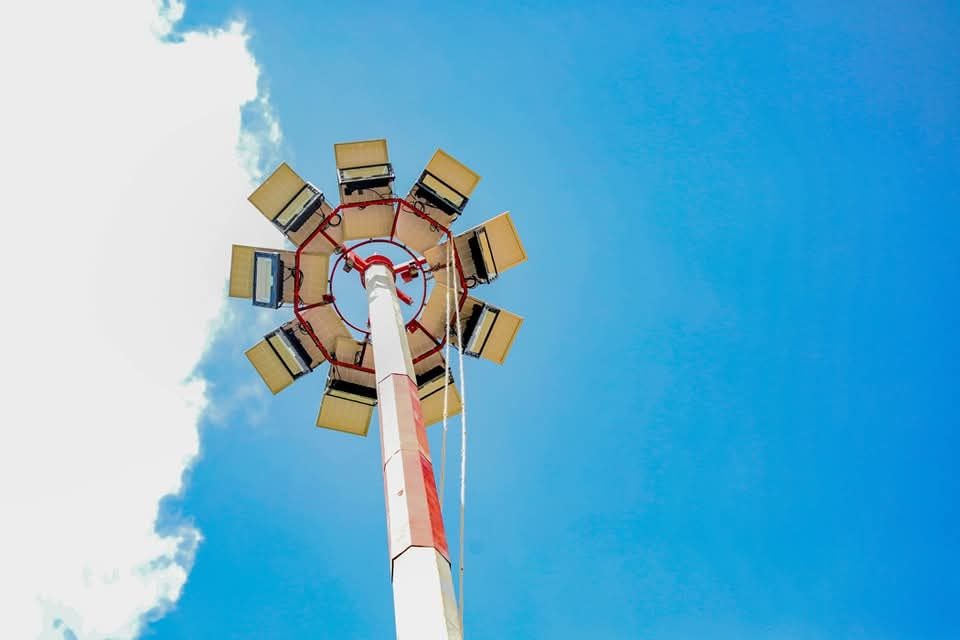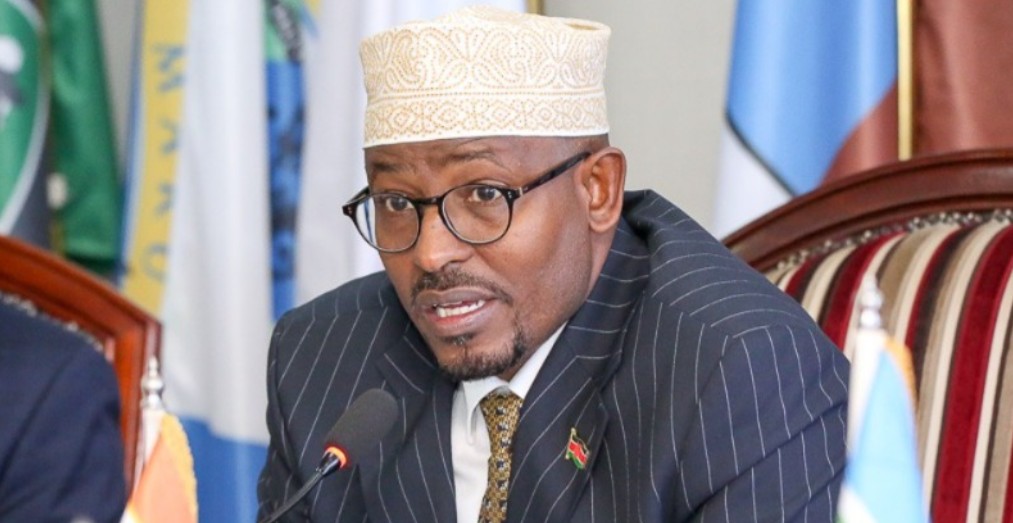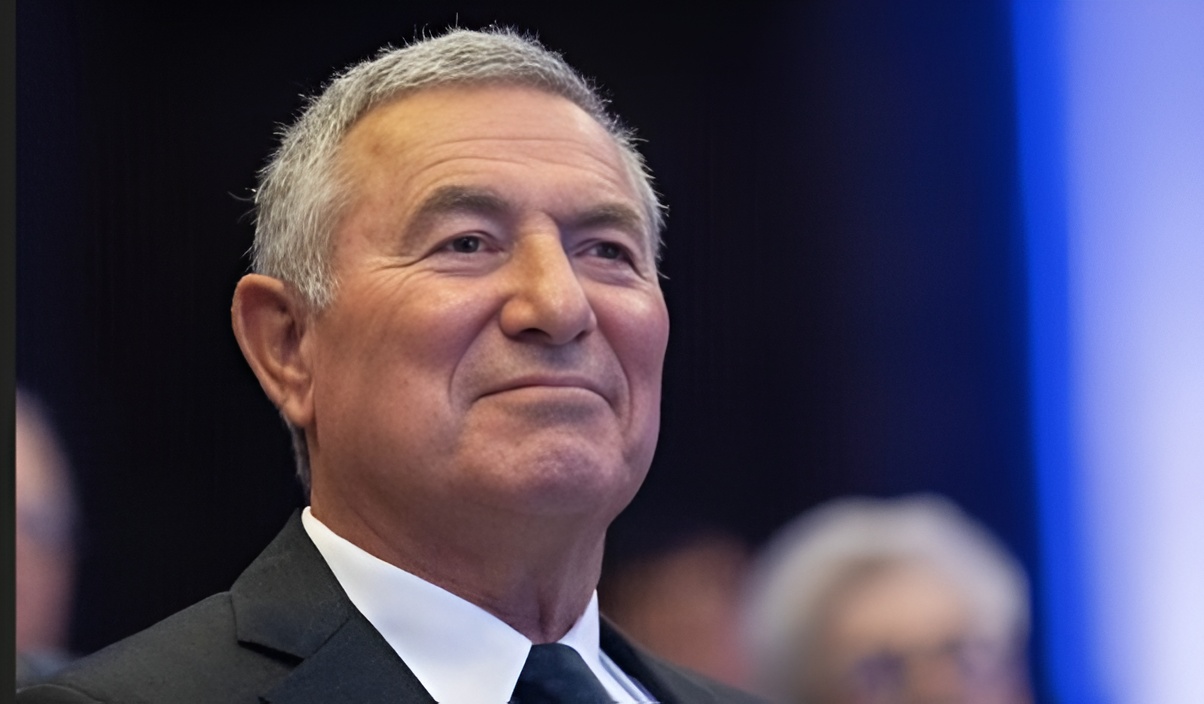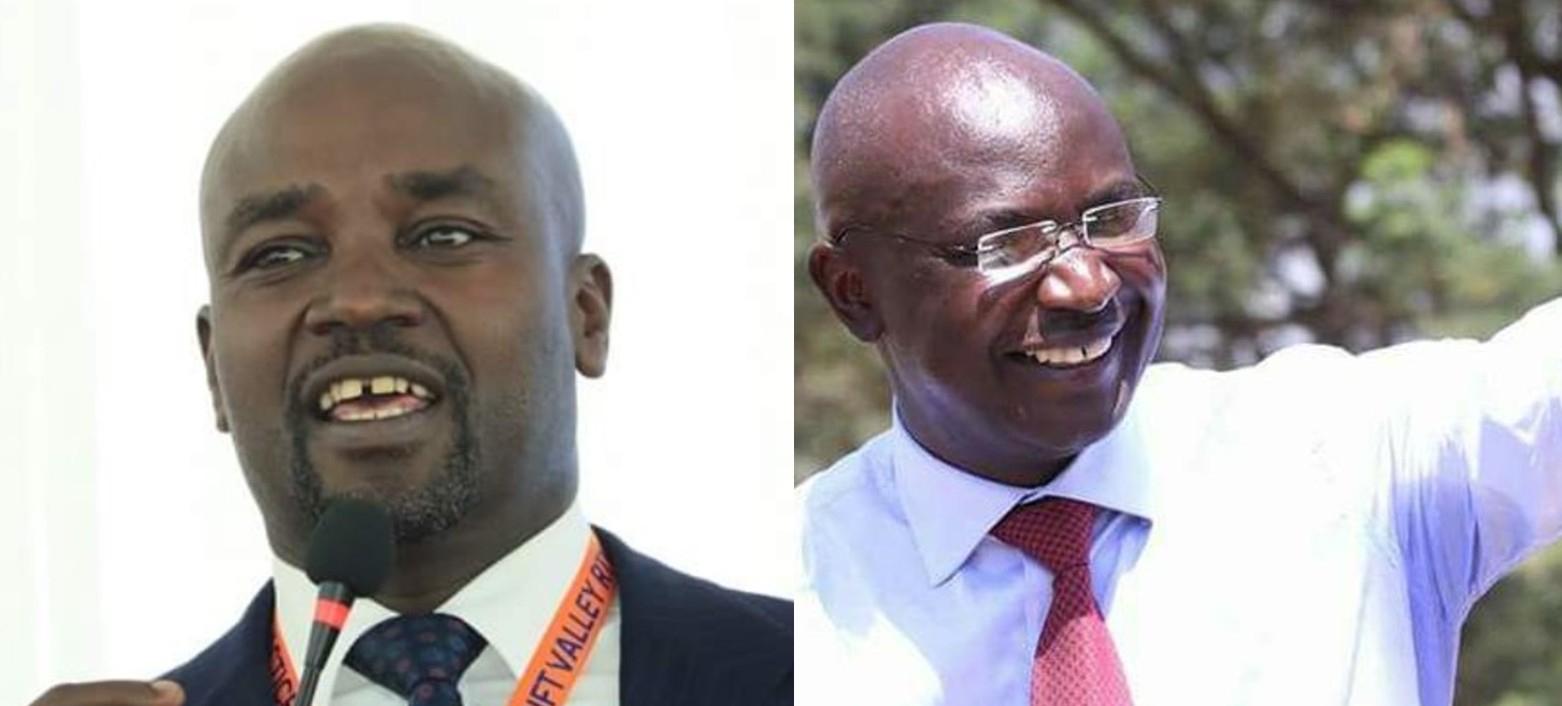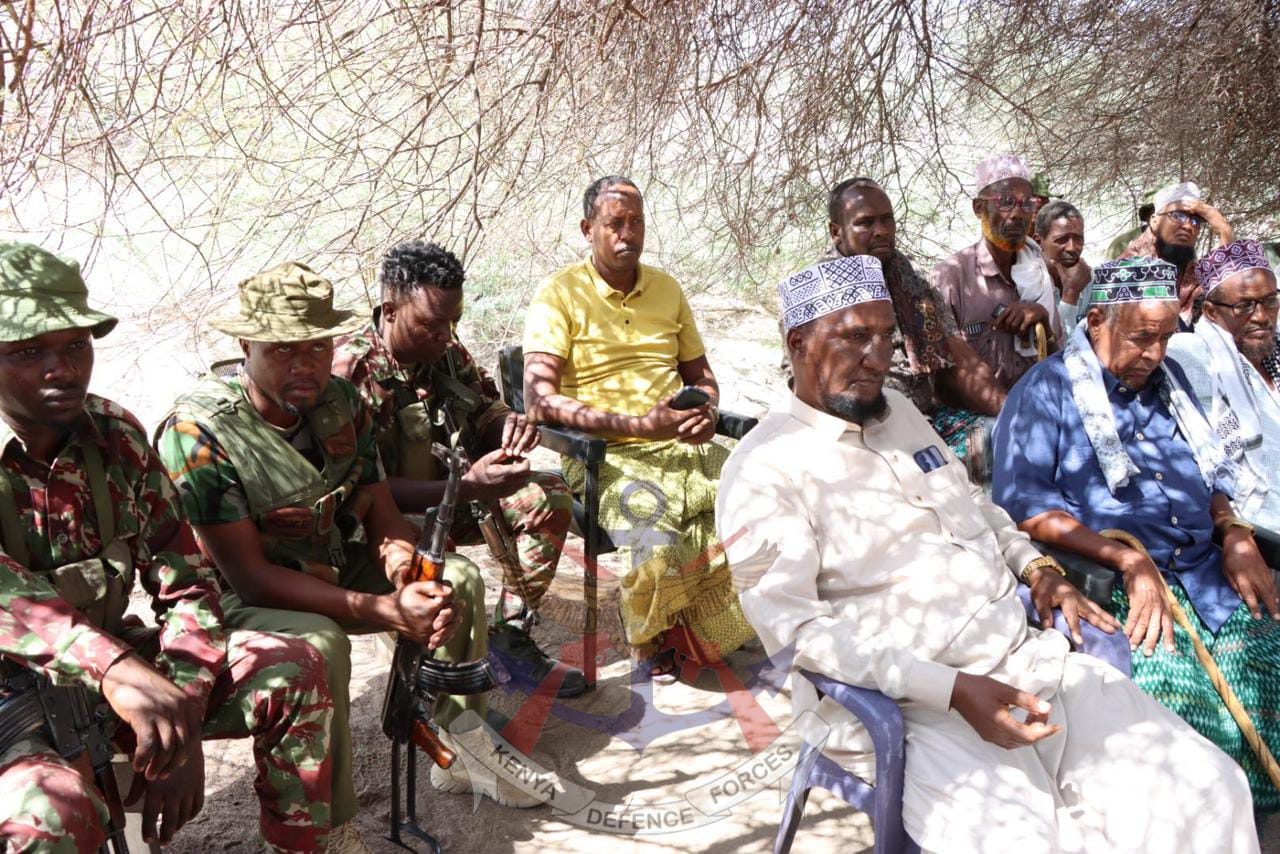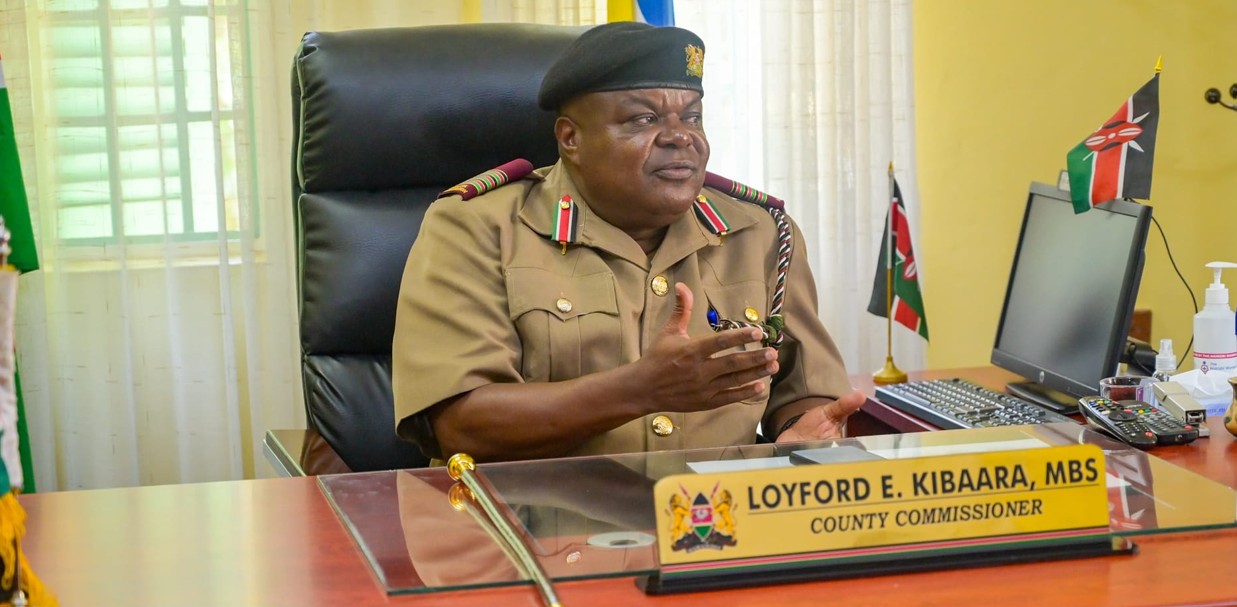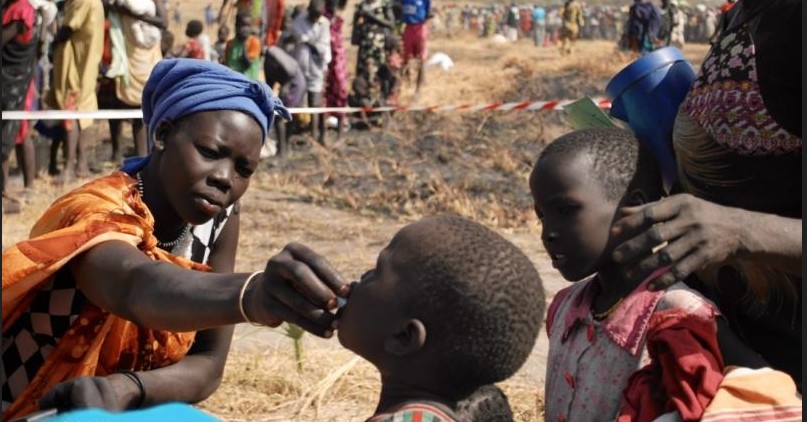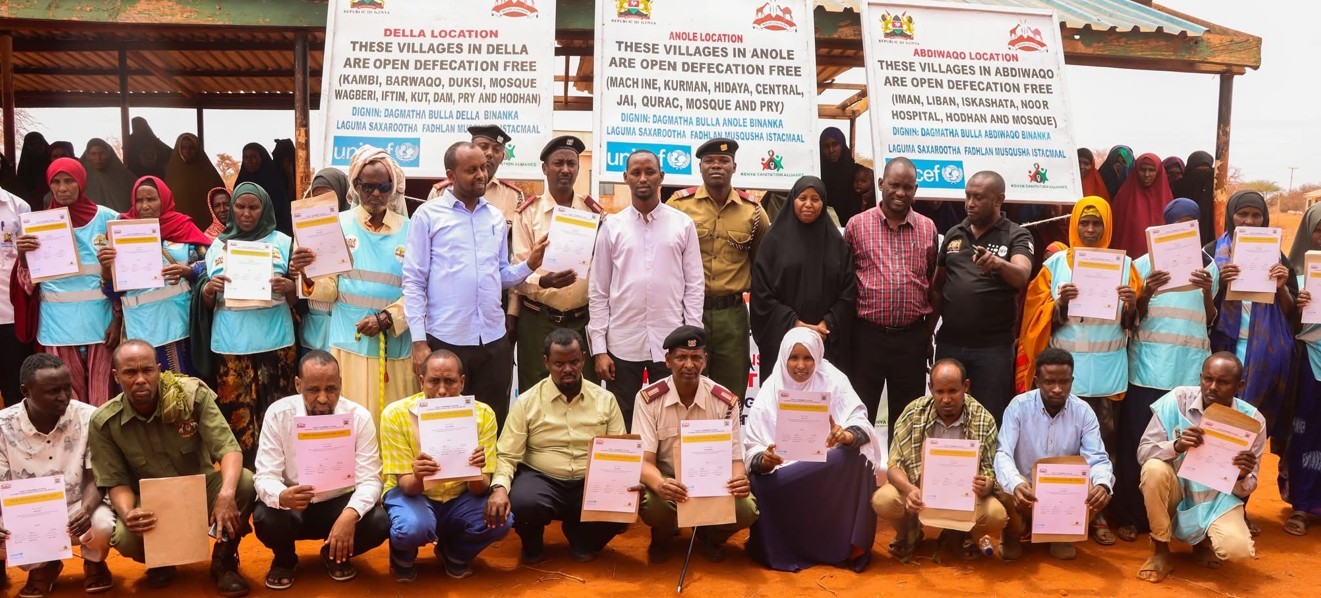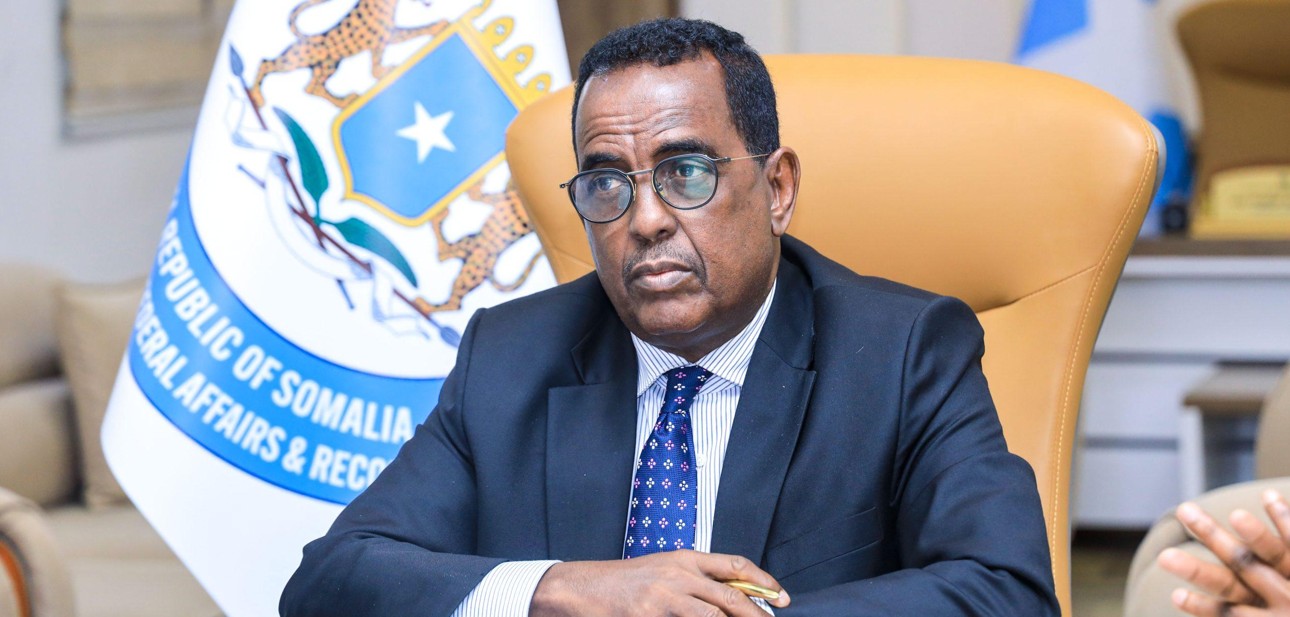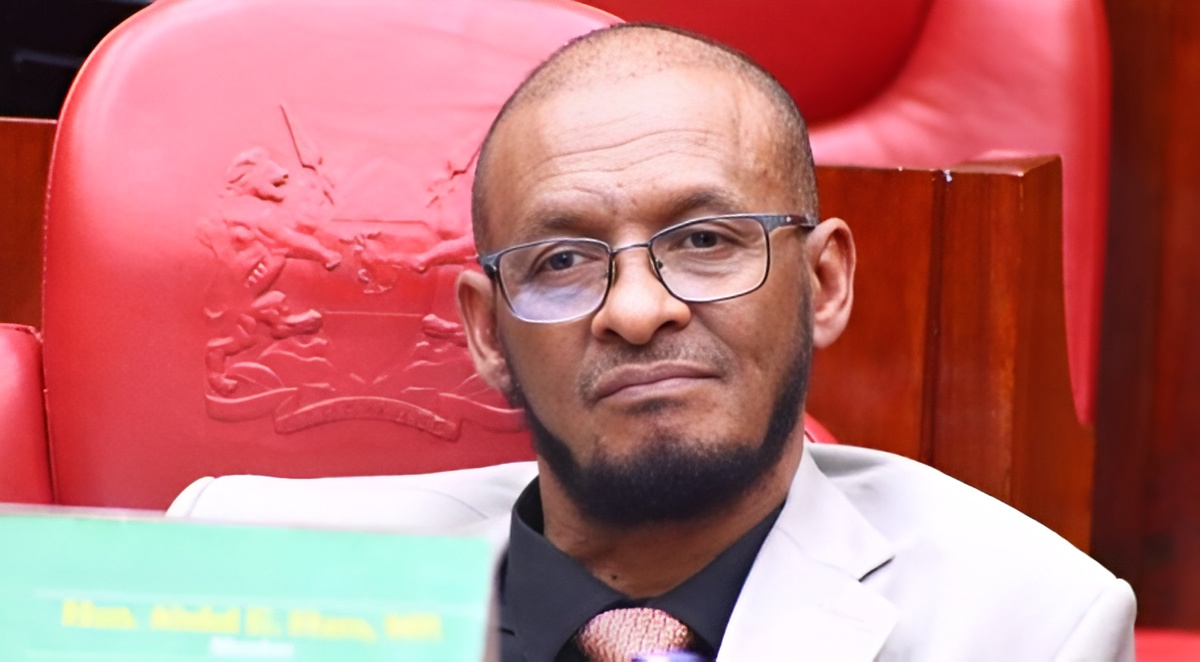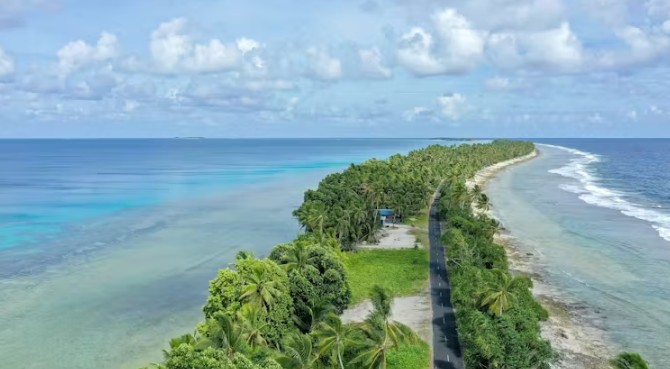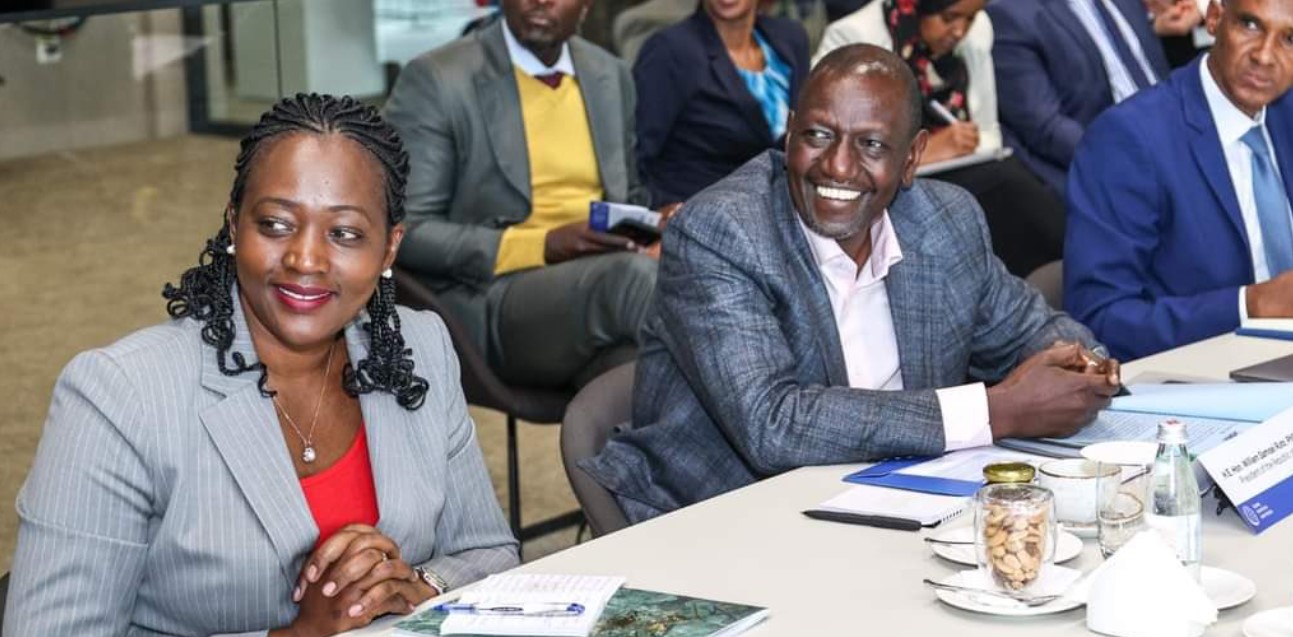Nairobi rekindles ties with Rabat, to open embassy amid Western Sahara dispute
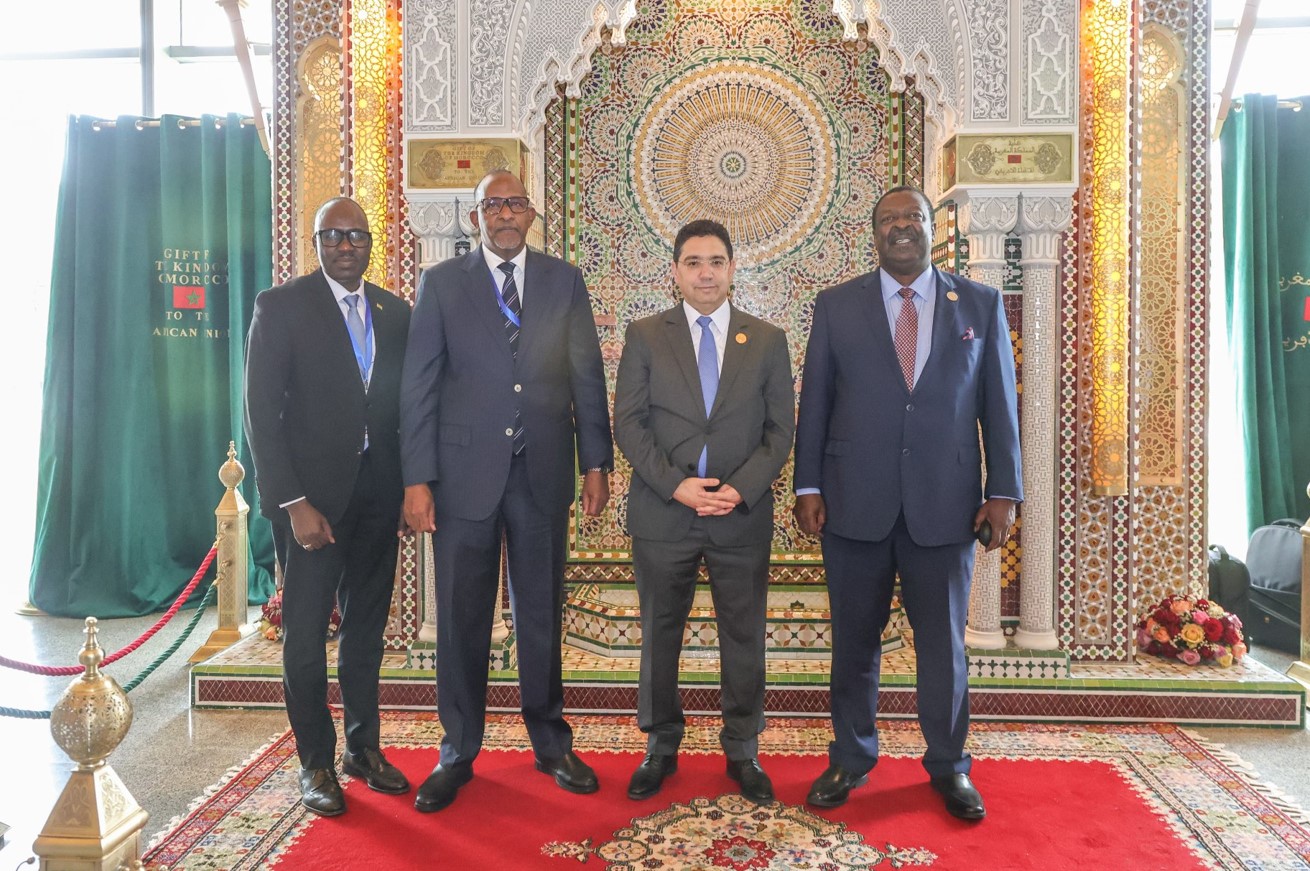
This decision reflects President William Ruto's plan to strengthen ties with "one of North Africa's biggest players".
Kenya's intention to bolster diplomatic relations with Morocco was stamped on Sunday as top foreign policy official Musalia Mudavadi met with his Moroccan counterpart Nasser Bourita on the sidelines of the African Union (AU) summit in Addis Ababa, Ethiopia.
The discussions centred on Kenya's plan to open a fully-fledged diplomatic mission in Rabat, signalling a U-turn from previous stances in bilateral ties between the two nations.
More To Read
- Kenya’s Singapore dream meets hard realities as country joins 13 African states at Singapore summit
- Kenya presses Tanzania to scrap ban on foreigners operating small businesses
- Kenya calls for governance overhaul as EAC gridlock deepens
- Kenya in push to repatriate over 1,000 citizens jailed abroad
- Political leaders warned against incitement as 2027 General Election approaches
- State House faults 'The Economist' over editorial on Kenya's authoritarian drift
Opening an embassy in Morocco means Kenya will take its diplomatic presence there from an honorary consulate to a full embassy with an ambassador.
Diplomatic sources in Rabat informed The Eastleigh Voice that the plans for establishing an embassy, including location decisions, have been finalised.
Kenyan foreign affairs officials have also in recent months visited the fertiliser-rich country to oversee the completion of all necessary arrangements.
The decision reflects President William Ruto's plan to strengthen ties with "one of North Africa's biggest players".
 Kenya's Prime Cabinet Secretary and Foreign Affairs minister Musalia Mudavadi during the 37th African Union Assembly in Addis Ababa, Ethiopia, on February 18, 2024. (Photo: X/ Musalia Mudavadi)
Kenya's Prime Cabinet Secretary and Foreign Affairs minister Musalia Mudavadi during the 37th African Union Assembly in Addis Ababa, Ethiopia, on February 18, 2024. (Photo: X/ Musalia Mudavadi)
The Western Sahara conflict
Amid the plans for the diplomatic mission in Morocco, the Western Sahaha dispute comes to the fore.
In 1975, Western Sahara, previously a Spanish colony, came under the control of Morocco and Mauritania. The following year, the Polisario Front, a local nationalist movement, declared the establishment of the Sahrawi Arab Democratic Republic in Western Sahara.
Since then, the Polisario Front, led by Brahim Ghali, has been engaged in a conflict with the Moroccan government over control of the region. Presently, Morocco holds approximately 80 per cent of Western Sahara, while the Polisario Front controls the remaining 20 per cent.
President William Ruto expressed Kenya's support for Morocco's position in the conflict just two days after taking office in September 2022, and announced the country's withdrawal of recognition for Western Sahara.
Ruto, who had pledged "cheap" fertiliser for farmers during his campaign, explicitly stated in a now-deleted tweet his intention to "wind down" the presence of the Sahrawi Arab Democratic Republic in Nairobi.
This decision was hours later revoked by the Foreign ministry after Kenya's credibility took a beating over the resolve to cut ties with an AU member state.
"Kenya does not conduct its foreign policy on Twitter," former Kenyan Foreign Affairs Principal Secretary Macharia Kamau said in a note verbale.
Other Topics To Read
Kenya then struck multiple deals with Morocco's state-owned phosphate giant, OCP Group, for the supply of phosphate-based fertiliser.
The deals, according to Morocco World News, helped Ruto deliver one of his key campaign promises of lowering the prices of fertiliser for struggling Kenyan farmers.
Geopolitical tensions
Asked about Morocco's approach in seeking recognition for Western Sahara as its territory, former Moroccan ambassador to Kenya, Moukhtar Ghambou, clarified in a 2022 interview with this writer that the strategy did not involve dangling carrots.
Instead, he emphasised Morocco's commitment to engage with other nations based on mutual respect.
As relations between Nairobi and Rabat strengthen behind the scenes, the casualty in this evolving camaraderie appears to be Western Sahara, which continues its pursuit of self-independence.
For a considerable period, Kenya has consistently supported the independence of Western Sahara and has remained committed to an age-old AU policy of recognising the Sahrawi Arab Democratic Republic as a sovereign state.
During a sideline vaccine manufacturing meeting in Addis Ababa on Sunday, President Ruto and Western Saharan leader Brahim Ghali were seen seated next to each other, both wearing smiles.
However, beneath the surface, geopolitical tensions linger as President Ruto's softer stance on Morocco contrasts with his predecessor Uhuru Kenyatta's support for Western Sahara.
Following Nairobi's decision to cut ties with Western Sahara, Brahim, who attended President Ruto's swearing-in luncheon at State House, Nairobi, remained in Kenya, possibly caught off guard by the shift in policy.
Whether the two leaders engaged in bilateral talks in Addis Ababa remains unknown at this time.
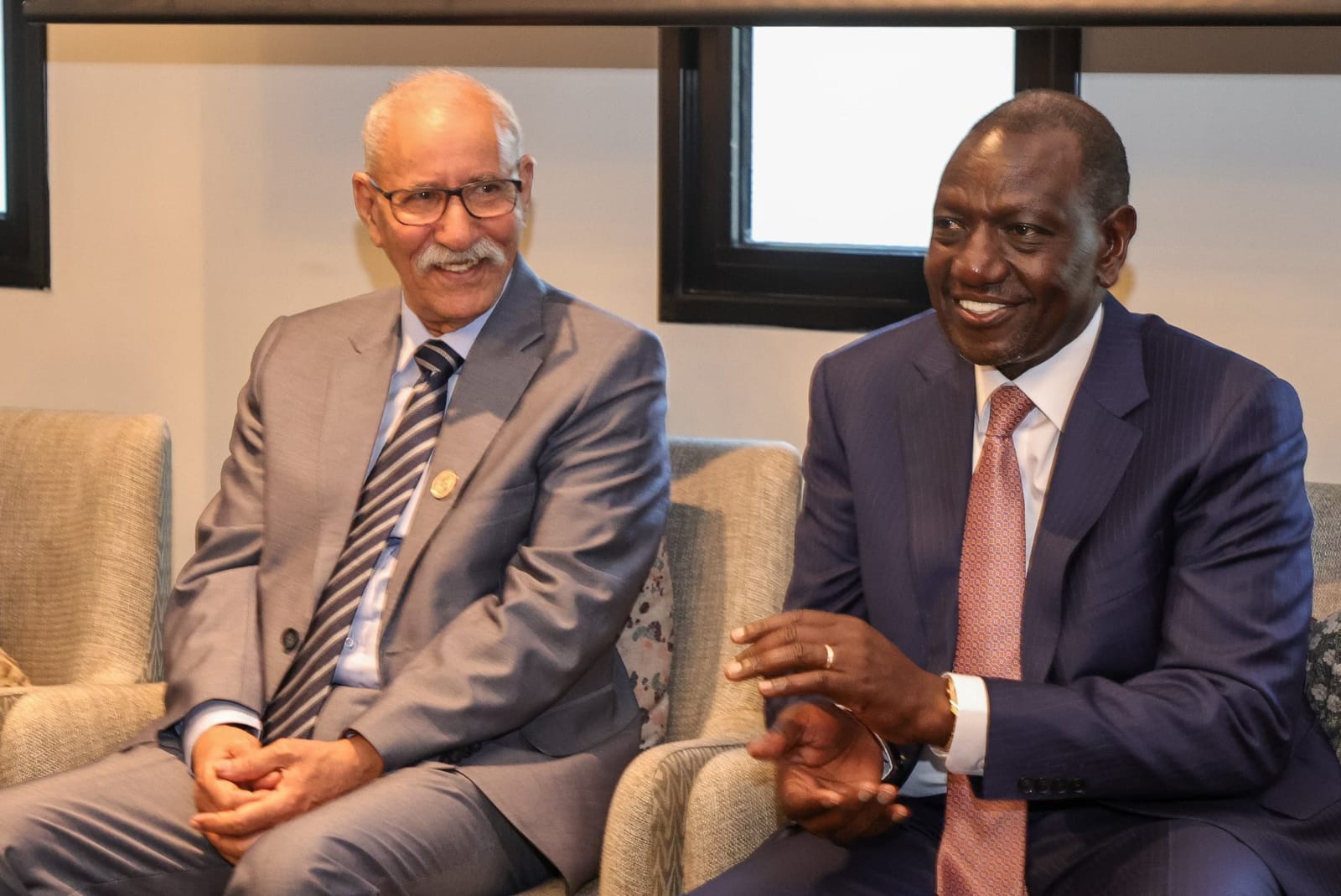 Kenyan President William Ruto is pictured with West Sahara leader Brahim Ghali in Addis Ababa, Ethiopia, during a vaccine manufacturing discussion, on the sidelines of the 37th African Union Assembly, on February 18, 2024. (Photo: X/ Musalia Mudavadi)
Kenyan President William Ruto is pictured with West Sahara leader Brahim Ghali in Addis Ababa, Ethiopia, during a vaccine manufacturing discussion, on the sidelines of the 37th African Union Assembly, on February 18, 2024. (Photo: X/ Musalia Mudavadi)
Raila's AUC candidature
Of note is that Morocco, a significant funder of the AU, wields considerable influence in AU politics.
During her candidacy for the top job at the African Union Commission in 2017, former Kenyan Foreign minister Amina Mohamed encountered opposition from Rabat due to Kenya's backing of Western Sahara.
She had previously met with the Sahrawi leader in his Tindouf region base in Algeria, a North African powerhouse with a contentious relationship with Morocco, and has supported the quest for Western Sahara independence.
Algiers, positioning itself as a key player in the conflict, officially backs the right of the Sahrawi people to self-determination.
Despite this stance, Algiers maintains positive relations with Nairobi, and both capitals uphold diplomatic presence.
In January, Algeria, which donated 16,000 metric tonnes of fertiliser to Kenya will likely get irked by the decision by Nairobi to open an embassy in Rabat.
The camaraderie between Kenya and Morocco will likely impact opposition leader Raila Odinga's candidacy for the top seat at the AU Commission.
Odinga has publicly confirmed his interest in succeeding Moussa Faki Mahamat, a Chad national, as the next chairperson of the African Union Commission (AUC). Backed by Nairobi, he has expressed his readiness to serve the continent, stating that Africa deserves better leadership.
His candidacy faces regional dynamics and obstacles if geopolitics and posturing come into play.
Top Stories Today

